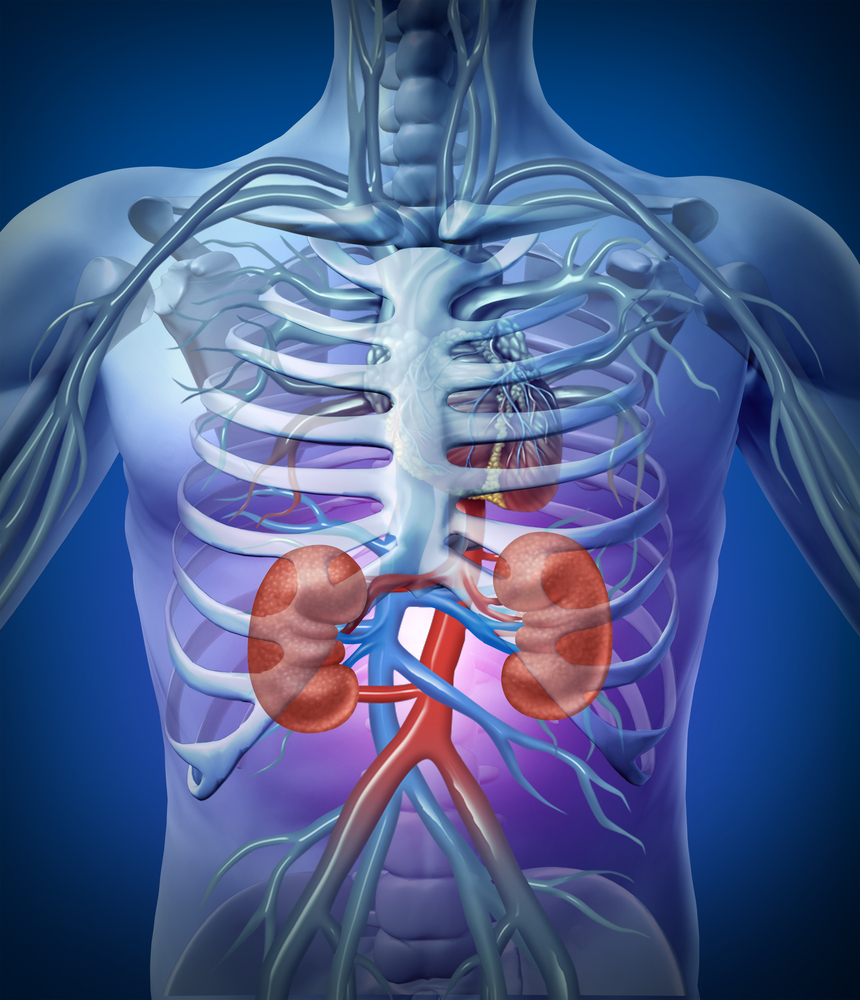Where Are Kidneys Located In The Body - Kidneys are paired organs located in the abdominal cavity of the human body, right below the ribcage. They play a vital role in filtering and eliminating waste products from the body, regulating blood pressure, and producing hormones. Here are some important facts about kidneys, their functions, and common diseases that affect them.
Kidney Anatomy
The kidney is divided into three main regions: the outer layer called the renal cortex, the middle layer called the renal medulla, and the inner layer called the renal pelvis. Each kidney has about one million functional units called nephrons, which filter the blood and produce urine.
Kidney Location

The kidneys are located just above the waistline, with the right kidney positioned slightly lower than the left one to accommodate the space occupied by the liver. They are protected by a layer of fat and muscles, as well as the lower ribs and the spine.
Kidney Function
The kidneys are responsible for filtering waste products from the blood and excreting them in the form of urine. They also help regulate the body’s fluid and electrolyte balance, blood pressure, and acid-base balance. Additionally, the kidneys produce hormones that stimulate the production of red blood cells and regulate calcium absorption and utilization.
Kidney Disease
Kidney disease can affect people of all ages and can lead to serious health complications if left untreated. Common causes of kidney disease include poorly controlled diabetes, high blood pressure, and glomerulonephritis. Symptoms of kidney disease may include fatigue, loss of appetite, swelling in the legs or feet, and changes in urination frequency or appearance.
Kidney Anatomy and Physiology
The kidneys are complex organs with intricate anatomy and physiology. Understanding how they work can help you maintain good kidney health and prevent kidney disease.
Tips for Maintaining Kidney Health
- Drink plenty of water
- Eat a healthy and balanced diet
- Exercise regularly
- Avoid smoking and excessive alcohol consumption
- Manage chronic conditions such as diabetes and hypertension
- Avoid over-the-counter pain medications, especially if you have kidney disease
Warning Signs of Kidney Disease
- Changes in urine frequency, appearance, or smell
- Swelling in the legs or feet
- High blood pressure
- Fatigue and weakness
- Nausea and vomiting
- Persistent itching or rash
Consult your healthcare provider if you experience any of these symptoms or have concerns about your kidney health. Early detection and treatment of kidney disease can help prevent complications and preserve kidney function.
Kidney Anatomy and Physiology
The kidneys are comprised of several distinct parts, each with a specific function. Understanding the different parts of the kidney can help you better understand how they work and how they can be affected by disease.
Parts of the Kidney
- Renal Cortex: The outer layer of the kidney that contains the nephrons responsible for filtering the blood.
- Renal Medulla: The middle layer of the kidney that contains the loops of Henle and collecting ducts that concentrate the urine.
- Renal Pelvis: The inner layer of the kidney that collects the urine and transports it to the ureters.
- Nephrons: The functional units of the kidney that filter the blood and produce urine.
- Glomerulus: A network of capillaries in the nephron where filtration occurs.
- Tubules: The structures in the nephron that reabsorb water and other substances from the filtered blood.
Kidney Health and Wellness
:max_bytes(150000):strip_icc()/male-kidney-anatomy--illustration-758313113-5aa15ae80e23d90037526254.jpg)
By maintaining good kidney health and following a healthy lifestyle, you can reduce your risk of developing kidney disease and promote overall wellness. Here are some tips for taking care of your kidneys:
Ideas for Kidney Health and Wellness
- Follow a balanced and healthy diet that is low in sodium, saturated fat, and cholesterol
- Stay hydrated by drinking plenty of water and other fluids
- Exercise regularly to maintain a healthy weight and improve circulation
- Avoid smoking and excessive alcohol consumption
- Manage chronic conditions such as diabetes and hypertension
- Take medications as prescribed and avoid over-the-counter pain relievers if you have kidney disease
By taking steps to maintain good kidney health, you can reduce your risk of developing kidney disease and other health complications. Talk to your healthcare provider if you have concerns about your kidney health or if you experience any symptoms of kidney disease.
Find more articles about Where Are Kidneys Located In The Body